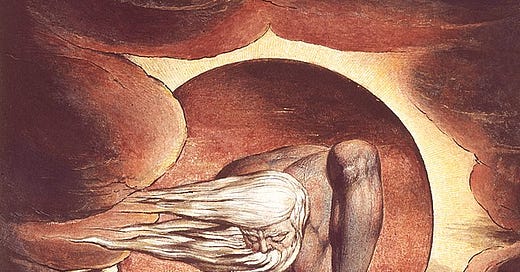As a species, we learned to tell stories about the gods long before it ever occurred to us to tell stories about ourselves. And, even when we first learned how to tell our own tales, we still at first could do so only by speaking of ourselves as mortals living out the brief spans of our lives in the presence of the immortals, under their benevolent or baleful gazes. It was a very long time indeed before we began to realize that we had tales to tell from which the gods might be absent, or at least within which they could remain safely hidden, without rendering the narratives incoherent. Until that moment (which no doubt lasted a great many centuries), the only “histories” of which we were conscious were accounts of events that had happened in some time beyond time, before and outside and above the passing hours by which our days are measured: in illo tempore, as Eliade liked to say, or “once upon a time”—or really, it might be more accurate to say, not in “time” (tempus, chronos) at all, but rather in that “age” (aevum, aion) that lies in the interval between time and eternity. And even then, well after it had become conceivable for us to undertake “histories” in the sense in which we use the term now—records of our remembered adventures in ordinary time—still our most natural narrative idiom for making sense of our place in the world remained myth. It was, in a sense, the gods who first taught us to speak of ourselves as the paradoxical or divided beings we are, at once placed within nature but also somehow set apart from it. They called to us out of the world’s high and hidden places, and our response to that call was, for us, the beginning of self-knowledge. They also taught us how, eventually, to inhabit history on our own terms, by allowing us progressively to appropriate for ourselves the narrative significance that once belonged exclusively to them, and gradually to dispense with the mediatory role they had long occupied between us and the highest mystery of being. All of this was the fruit of that immemorial commerce of identities that once long ago existed between them and us—between, that is, anthropomorphic deities and theomorphic human beings. And, frankly, it is only so long as we remember the communion we enjoyed with them in illo tempore that our histories have any real meaning at all; it is only so long as we remember those myths that we can take full account of what it is that makes us human.
Keep reading with a 7-day free trial
Subscribe to Leaves in the Wind to keep reading this post and get 7 days of free access to the full post archives.



